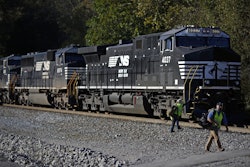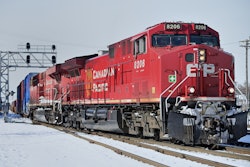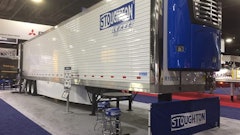
Ongoing disputes over safety, scheduling practices, and relocation notices between the Teamsters and rail operators have escalated.
On Aug. 22, two of Canada’s major freight railroads -- Canadian National (CN) and Canadian Pacific Kansas City Southern (CPKC) -- shut down operations, according to management of the two companies, locking out 9,000 members of the Teamsters union who operate the trains. These two companies account for an estimated 90-95% of all rail shipments in Canada, meaning disruptions can have widespread effects on supply chains across North America.
On Aug. 24, the Canada Industrial Relations Board (CIRB) ordered CN and CPKC to resume operations and Teamsters Canada Rail Conference (TCRC) employees to resume their duties.
Although it’s back to business as usual, for now, the ripple effects continue to impact the North American supply chain, according to project44.
Key takeaways:
- The industries most impacted include mining, forestry, agriculture, automotive, consumer goods, and manufacturing, according to project44.
- Typically, average wait times fluctuate between a 1-1.5 days. However, since the strike, dwell time at origin yards has consistently increased, reaching a recent high of over two days during the week of Aug. 26—a 44% increase. This spike likely reflects the effort to clear out backlogs from the labor stoppage. It is possible that dwell time will continue rising as containers impacted by the stoppage are loaded onto trains.
- Average wait times at destination yards normally range from 1-2.5 days. However, since the strike, these times have dropped by nearly 80%, likely due to the decreased volume of shipments arriving in recent weeks. With fewer shipments to handle, more appointments have become available, allowing for faster turnaround times.
- As shipment volumes increase, it’s possible that congestion at destination rail yards will return, pushing dwell times back up.
- After an initial rise in transit time following the strike, this metric has since leveled off. In the past two weeks, transit time has decreased by 23%, aligning with pre-strike averages.
- Intermodal containers are typically shipped by rail due to the efficiency of moving large volumes over long distances. As Black Friday, Cyber Monday, and other holiday shopping deals approach, the increased costs in transportation could cause retailers to limit the amount of deep discounts given in order to recoup the loss.
“In summary, the recent labor disputes between Canadian National Rail Line and Canadian Pacific Kansas City have significantly disrupted rail operations, causing ripple effects across several key industries in Canada and North America,” says project44. “While operations have resumed after a brief strike, tensions between the unions and rail companies persist, affecting service levels. Critical industries such as oil, minerals, lumber, automotive, and intermodal freight remain particularly vulnerable to ongoing inefficiencies. As shipping volumes recover, both rail and alternate transport methods, like trucking, face increased pressure, potentially leading to higher costs and supply chain disruptions, especially as peak consumer shopping seasons approach.”


![Pros To Know 2026 [color]](https://img.sdcexec.com/mindful/acbm/workspaces/default/uploads/2025/08/prostoknow-2026-color.mduFvhpgMk.png?auto=format%2Ccompress&bg=fff&fill-color=fff&fit=fill&h=100&q=70&w=100)







![Pros To Know 2026 [color]](https://img.sdcexec.com/mindful/acbm/workspaces/default/uploads/2025/08/prostoknow-2026-color.mduFvhpgMk.png?ar=16%3A9&auto=format%2Ccompress&bg=fff&fill-color=fff&fit=fill&h=135&q=70&w=240)









